The new head of Iran’s Atomic Energy Agency is Mohammad Eslami, a 64-year-old civil engineer who formerly served as Minister of Roads in Hassan Rouhani’s government. Ex- Foreign Minister Javad Zarif called him one of the “good” ones – potentially because of his role in closing the International Atomic Energy Agency’s investigation into the so-called PMDs, “possible military dimensions”, of Iran’s nuclear program. This in turn paved the way for the signing of the JCPOA.
Prior to this Eslami, allegedly at least, had a history of association with Iran’s nuclear industry. In 2008, while Eslami was working as head of Iran’s Defense Industries Training and Research Institute, the United Nations accused him of “being engaged in, directly associated with or providing support for Iran’s proliferation of sensitive nuclear activities or for the development of nuclear weapon delivery systems.” He was sanctioned specifically for “involvement in procurement of prohibited items, goods, equipment, materials and technology,” a point on which the UN did not elaborate further.
In the days before the JCPOA was signed in 2015, Eslami travelled to Vienna as Iran’s deputy defense minister to participate in negotiations to close the case on PMDs. Eventually, the IAEA’s Board of Governors voted to put the matter to rest.
Born in 1956 in Isfahan, Eslami had previously spent time in the US after graduating from high school. He got his BSc in civil engineering from Detroit University in 1979 and a master’s degree in the same field from Ohio University in 1981. He also secured an MBA in global aviation management from the Royal Rhodes University in British Columbia.
After the 1979 Islamic Revolution, like many young supporters of Ayatollah Khomeini, Eslami came back to Iran and landed a job in one of the newly-formed institutions of the Islamic Republic: the Mostazafan Foundation. In 1987, he was appointed deputy head of the country’s Aerospace Industries Organization and for a while also served as managing director of the Iran Aircraft Manufacturing Industrial Company.
In 2004, under President Mohammad Khatami, he was appointed head of the Defense Industries Research and Training Institute: a position equal to that of a deputy minister. Later, both under Mahmoud Ahmadinejad and the first term of Hassan Rouhani, he served as deputy head of the Defense Ministry’s Civil Defense System. In 2017 he was appointed governor of Mazandaran province.
While studying in the US, Eslami had got to know Mahmoud Vaezi, who would later become Rouhani’s chief of staff. This may have been a factor in his appointment as Minister of Roads and Urban Development in 2018. While working at the Mostazafan Foundation, he had also made the acquaintance of Ali Saeedlou, Ahmadinejad’s vice president for international affairs. He never adopted a clear political stance himself, which might explain how he was able to work under two presidents with incompatible political affiliations.
One of the most notable events during Eslami’s tenure as Rouhani’s Minister of Roads was the shooting down of Flight 752 by the Revolutionary Guards on January 8, 2020. At first, the Islamic Republic denied that the Guards had been responsible for the disaster, which claimed 176 lives, and declared it a lie spread by the White House.
In an interview that was leaked in February 2021, Javad Zarif named Eslami in connection with the downing of the plane. Two days after the incident, he claimed, at the end of a meeting of the Supreme National Security Council, “Mr. Shamkhani [Ali Shamkhani, secretary of the council] and General Bagheri [Mohammad Hossein Bagheri, chief of staff of the Armed Forces] went upstairs. Mr. Eslami and I said our noon prayers downstairs. I went home, and Mr. Eslami went upstairs. At that time, Mr. Esmaili should have known [about the downing of Flight 752] but nobody told me anything.”
When pressed by the interviewer as to why, then, had Rouhani not dismissed Eslami in the aftermath, Zarif appeared to row back on his claim. It wasn’t “certain”, he said, whether Eslami had known about the disaster on that particular day or not.
Quiet and Uncontroversial
On the face of it Eslami’s appointment was a curious choice as he has not – officially at least – had any experience of working directly with the Atomic Energy Agency. Ebrahim Raisi could have brought back Fereydoon Abbasi, head of the agency under Ahmadinejad, but it might be that he wanted a less divisive figure. If so, as former Minister of Roads, Eslami is just that: quiet and for the most part, uncontroversial.
For his part, Fereydoon Abbasi praised Eslami’s appointment, declaring: “He has a very good record in training and research... [his appointment] is a harbinger of correct execution of the regime’s nuclear strategy.”
Eslami’s appointment can also be read as a message to Western states that the Islamic Republic is preparing to become more active in the military fields. It comes after Raisi appointed the IRGC-affiliated Amir Abdollahian as foreign minister, which was interpreted by some as a sign that – just as Javad Zarif opined in another infamous leaked interview this summer – Iranian diplomacy had indeed ceded to the “battlefield”. Eslami, too, represents the military establishment at the help of Iran’s nuclear program.
At the same time, though, others believe Eslami’s appointment and the fact that Ali Shamkhani has been retained as secretary of the Supreme National Security Council indicate the Raisi administration is serious about negotiating a return to the JCPOA. Together with Amir Abdollahian, these two might be able to convince the military establishment to accept a fresh agreement.
Related Coverage:
Mohsen Rezaei: Raisi Adds Another AMIA Bombing Suspect to Iran's Top Team
The Supreme Leader Interferes in Cabinet Selections Again
Raisi's Cabinet Picks: The Sanctioned and the Wanted
Sanctioned Setad Boss is Iran's New Vice President
Novices, Ideologues and Terrorists: Raisi’s Cabinet Revealed
Argentina Slams Appointment of Alleged Bombing Mastermind to Iran's Interior Ministry
Deeply Religious 'Safe Pair of Hands' is Iran's New Economy Chief




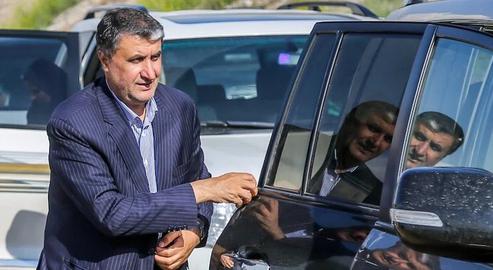
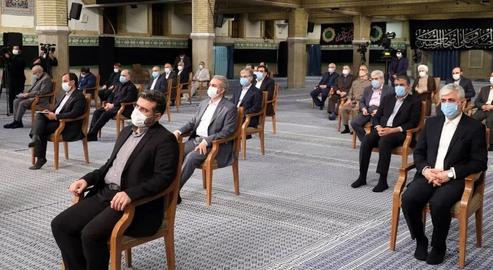









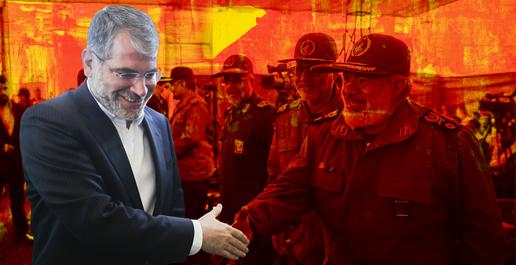
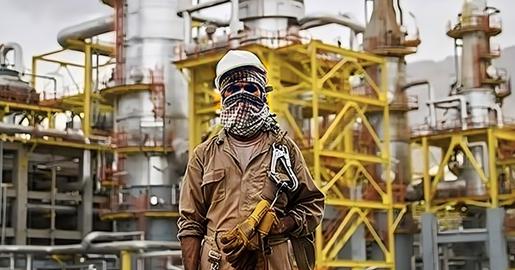
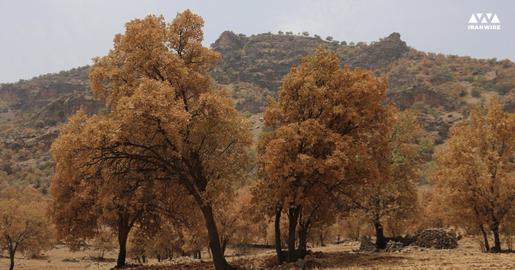
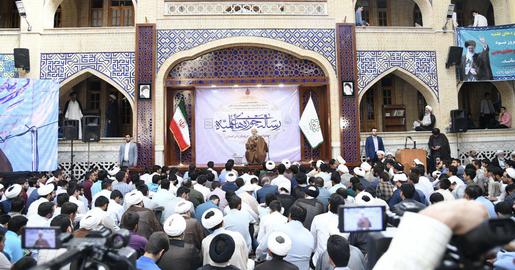

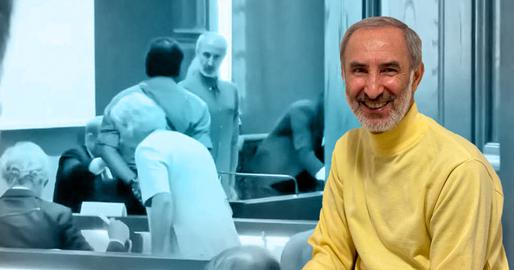




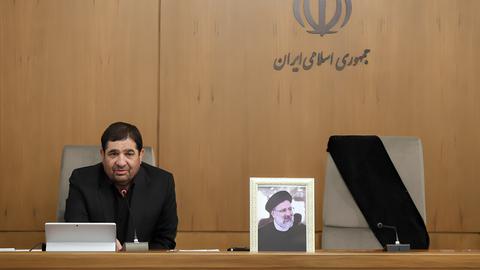
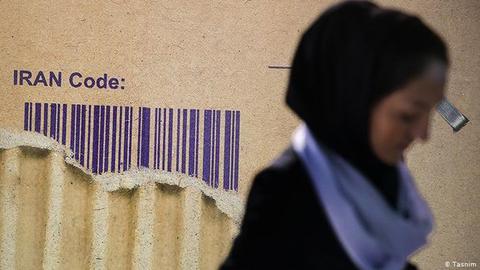
comments